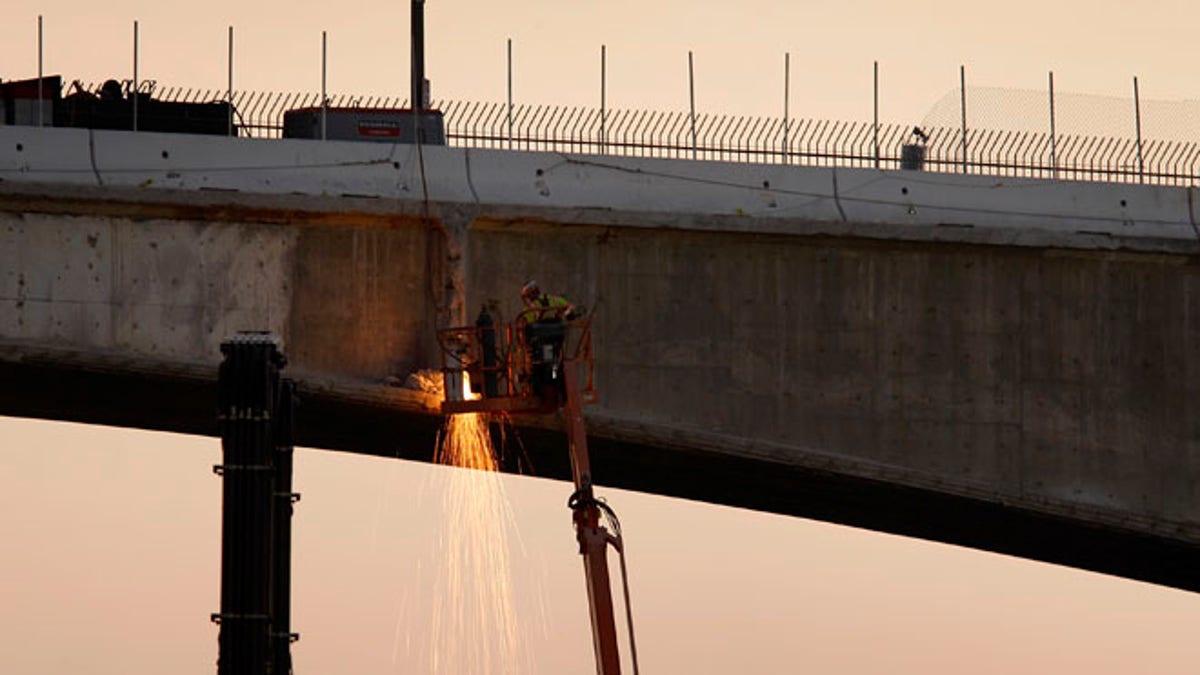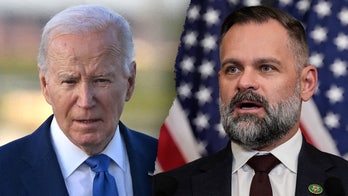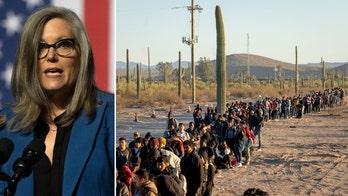
FILE: 2011: The Mulholland Drive bridge, across the 405 freeway, under repair. Los Angeles, Calif. (REUTERS)
Governors and legislatures across the country are considering increasing their state tax on gasoline, amid a combination of falling pump prices and depleted transportation-construction funds.
At least eight states have proposed increasing their gas tax, as Washington also looks for ways to find money for highway and transit projects.
Recently falling gas prices have made the situation more urgent. But state and federal coffers that pay for such projects have been moving deeper into the red for years as Americans drive less, vehicles are more fuel efficient and construction costs have increased.
Still, motorists appear resistant to a tax hike, despite gas prices at a roughly six-year low and state taxes on gasoline in some cases having not been increased in the past 20 years.
The situation also presents a dilemma for elected officials.
They are responsible for keeping roads and bridges safe and fulfilling pressing needs to build more transportation infrastructure but must make the politically unpopular request for higher taxes to help meet those demands.
In New Jersey, for example, a poll released this week by Farleigh Dickenson University’s Public Mind found respondents opposed increasing gas taxes by a more than two-to-one margin, 68-to-24 percent.
The pollsters said residents see the need for road repairs but want policymakers to look beyond “overtaxed wallets” to find the revenue.
“It’s a calculation not without risk,” New Jersey Assemblyman John Wisniewski said on Wednesday. “But we are flirting with disaster by not investing in infrastructure.”
Wisniewski, a Democrat, has a plan to increase the state gas tax by 25 cents a gallon with amendments to ensure the money goes toward its intended purpose, instead of becoming slush fund revenue.
He told FoxNews.com that his argument before constituents would in part focus on the state’s urgent need for more rail tunnels underneath the Hudson River, to get commuters to work in New York, and the bridges across the state that are in desperate need of repair, including a county-owned one closed last week by the state because it was “structurally deficient.”
Gov. Chris Christie -- a potential 2016 White House candidate and one of several Republican governors in at least eight states considering a tax increase -- mentioned neither the gas tax nor transportation-funding issues last week in his State of the State address.
In addition to New Jersey, Georgia, Iowa, Louisiana, Michigan, South Dakota, Tennessee and Utah are considering increasing their state gas tax to bail out under-funded transportation budgets.
Louisiana transportation officials say they have a $12 billion backlog in road repairs, which has prompted lawmakers to consider several options to increase revenue, which includes replacing the gas tax with a sales tax on all fuels.
Republican governors in Iowa and Michigan have taken different approaches -- letting voters decide.
In Iowa, Gov. Terry Branstad says improving roads is a 2015 priority and is asking state lawmakers to help him craft a bipartisan solution. He has expressed openness to a plan in which each county holds a referendum to increase the sales tax on gas and diesel fuel by 1 percent.
“Without action, Iowa's roads and bridges face an uncertain future,” he said recently.
The existing 22-cents-a- gallon tax has remained unchanged since 1989.
In Michigan, Gov. Rick Snyder has agreed to spend an additional $1.3 billion a year for roads and other transportation program, if residents in a May 5 referendum vote to increase the sales tax from 6 to 7 percent, according to USA Today.
In Washington, D.C., the average price of gas was $2.50 a gallon when the new, Republican-controlled Congress convened earlier this month, which sparked talks about increasing the federal tax on gas and diesel fuel for the first time in more than 20 years.
But GOP leaders are tamping down expectations, leaving no clear solution to the funding problem.
"I don't know of any support for a gas tax increase in Congress," Texas GOP Sen. John Cornyn, the No. 2 Senate GOP leader, recently said.
The federal tax on gas is 18.4 cents a gallon and 24.4 cents a gallon on diesel fuel. They were last increased in 1993.
Fuel taxes bring in about $34 billion a year to the federal Highway Trust Fund, but the government spends about $50 billion a year. The trust fund has been the main source of federal transportation aid to states for more than 60 years.
Congress has kept transportation programs teetering on the edge of insolvency since 2008 by repeatedly transferring just enough funds from the general treasury -- and making corresponding spending cuts elsewhere in the federal budget -- to meet obligations for a few more months or, in one case, as long as two years.
But finding acceptable spending cuts to offset the transfers gets more difficult each time.
Even President Obama has rejected the notion of a gas-tax increase, while calling on Congress to pursue other bipartisan measures to fund infrastructure.
Obama mentioned infrastructure five times in his State of the Union address on Tuesday and renewed his call to instead fund projects with revenue from eliminating tax “loopholes” for U.S. companies with overseas holdings.
The Associated Press contributed to this report.




